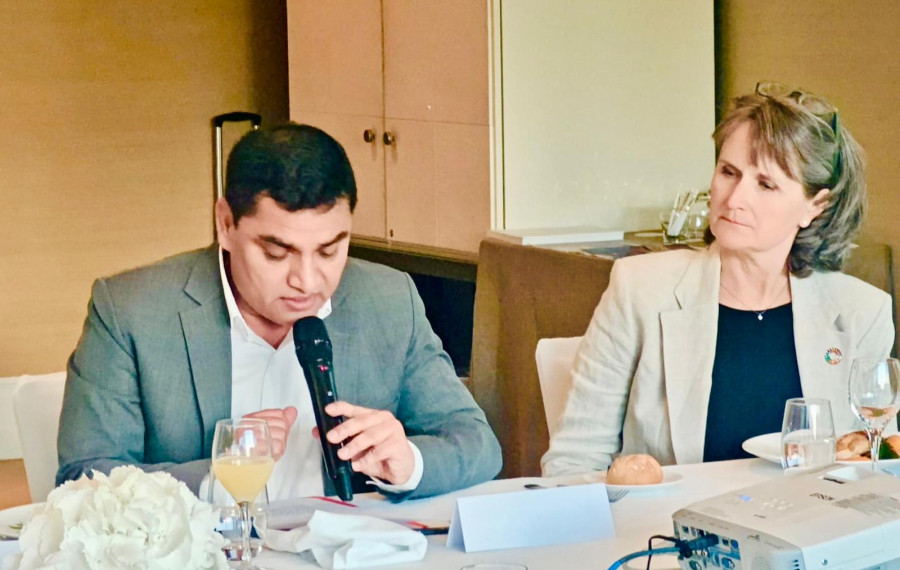Health
Foreign aid cut affects Nepal’s maternal and child health programmes: Minister Paudel
Requests the United Nations for support to continue lifesaving programmes.
Post Report
Minister for Health and Population Pradip Paudel has said that the suspension and decline in foreign aid of late have affected ongoing life saving maternal, child and neonatal health programmes.
Addressing a high-level ministerial roundtable in Geneva on Saturday ahead of the 78th World Health Assembly, Paudel called on the United Nations and international donors to ensure the continuity of support for life-saving health services in Nepal.
“Vital services for nearly five million women and nutrition programmes for 1.5 million children under five have been affected,” said Paudel. “Additionally, 3.5 million adults relying on reproductive health education and services are now facing challenges due to the funding cuts.”
Along with maternal, child and neonatal health schemes, multiple other health care programmes have been affected or terminated with the suspension of USAID funds and decline in funding from other donor agencies, according to health officials.
The terminated programmes include key health surveys such as the micronutrient survey, which was planned over the past 10 years; the lymphatic filariasis transmission survey; the promotion of exclusive breastfeeding at 18 major hospitals; and HIV prevention programmes for female sex workers, gay men, and people taking injectable drugs, among others.
Other affected programmes are ‘outbreak investigation training’ for doctors, neonatal care training for hundreds of doctors and nurses, and various programmes related to the Sustainable Development Goals, including maternal and child health, nutrition, reproductive health, and family planning. Programmes under the Integrated Health Information Management System have also been hit.
Minister Paudel urged the global community, particularly the United Nations and other donor organisations, to focus on providing sustainable economic and technical support to help least developed countries like Nepal meet pressing health needs.
During the meeting, the minister also shared Nepal’s notable progress in maternal health. He reported that the country’s maternal mortality ratio had decreased by 71 percent in 2023 compared to the year 2000. He expressed confidence that Nepal is on track to meet the Sustainable Development Goals (SDGs) by 2030 if the progress continues.




 22.7°C Kathmandu
22.7°C Kathmandu














